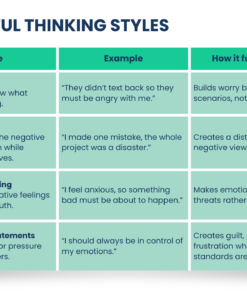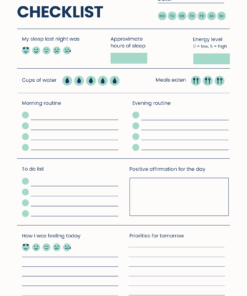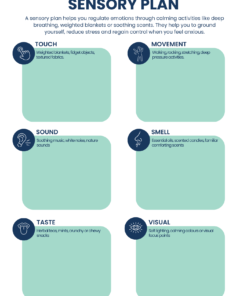Motivation, Occupational Therapy
2. Motivation: an occupational therapy perspective on the meaning of motivation
Beyond willpower: The occupational therapy perspective on finding your inner drive
Motivation that often elusive feeling that seems to come and go like the tides is frequently viewed as simply a matter of willpower a personal reserve of mental strength that we either have in abundance or find ourselves lacking. But from an occupational therapy or OT perspective motivation is a far more nuanced and multifaceted concept. It isn’t just about gritting your teeth and forcing yourself to do something. Instead in occupational therapy motivation is understood to be deeply and intricately connected to meaning the establishment of supportive routines and the way in which we actively engage with the everyday activities that make up our lives.
The heart of the matter: The role of meaning in driving motivation
As occupational therapists we hold a fundamental understanding that individuals are most likely to be motivated and engaged when they feel a genuine connection to what they are doing. When an activity holds personal value resonates with their beliefs or contributes to something they care about it becomes significantly easier to initiate and sustain that activity over time.
If you find yourself consistently struggling with motivation to undertake a particular task take a moment to pause and ask yourself a crucial question: Why does this activity truly matter to me? Whether it’s choosing to exercise to feel stronger and more energetic cooking a nourishing meal for yourself and your loved ones or tidying your living space to create a sense of calm and order identifying the underlying “why” behind the task can infuse it with a greater sense of personal meaning transforming it from a chore into something more purposeful and therefore more motivating. Think of it like following a map your destination provides the meaning and direction for your journey.
Finding your flow: The occupational therapy concept of the just-right challenge
One of the foundational principles in occupational therapy practice is the concept of the “just-right challenge”. This refers to finding that delicate sweet spot a perfect balance between an activity being too easy which can lead to boredom and a lack of engagement and being too difficult which can result in feelings of overwhelm frustration and ultimately demotivation. When your motivation feels low it’s worth considering whether the task at hand needs adjusting to better align with your current abilities and energy levels. If a task feels overwhelmingly difficult try breaking it down into smaller more manageable steps each with its own sense of achievable success.
Conversely if a task feels monotonous and uninspiring explore ways to make it more engaging perhaps by adding an element of novelty or creativity. For example if you find cleaning tedious try listening to your favourite music or an interesting podcast while you work set a timer for short bursts of focused effort followed by brief breaks or even turn a routine task into a social activity by involving a friend or family member. It’s like finding the perfect level of spice in a dish not too bland to be uninteresting and not so hot as to be overwhelming.
Setting the stage: How environment shapes your desire to act
Motivation isn’t solely an internal state of mind it is also significantly shaped by our external environment and the routines we establish within it. Often small adjustments to our surroundings can make a surprisingly big difference to our inclination to take action.
If you consistently find it hard to get started on a particular task take a moment to consider whether your environment is supporting or hindering you. Would a visual reminder like leaving your workout clothes laid out the night before help prompt you to exercise in the morning? Is your workspace organised and conducive to focused work or is it cluttered and distracting? Do you need a specific cue like placing your library book by the door to remind you to return it? Occupational therapists often work with individuals to adapt their environment to better support their engagement in desired activities.
The power of habit: Your daily structure for sustained action
Routine plays a crucial role in sustaining motivation over the long term. The more consistently we repeat an action the less we need to rely on the often-fickle feeling of motivation to actually do it. Occupational therapy often places a strong emphasis on embedding helpful habits into daily life so that over time these actions become more automatic requiring less conscious effort and willpower.
Think of it like learning to tie your shoelaces initially it requires conscious thought and effort but with repetition it becomes an automatic habit. By consciously establishing routines around activities we want to incorporate into our lives we can reduce our reliance on fleeting motivation and increase the likelihood of consistent engagement.
Kindness counts: The importance of self-compassion in the motivation journey
It’s important to remember that motivation isn’t a constant unwavering force it naturally fluctuates and that’s perfectly okay. From an occupational therapy perspective self-compassion is a vital ingredient in navigating these fluctuations. If your motivation dips rather than resorting to self-criticism and negative self-talk try adopting a more gentle and understanding approach. Ask yourself “What’s one small manageable thing I can realistically do right now?”
On some days that might mean tackling the entire task with enthusiasm while on other days it might simply mean completing just one small step of a larger task and that is still progress worth acknowledging. Treat yourself with the same kindness and understanding you would offer a friend facing a similar challenge.
Final thoughts: Nurturing your inner drive through occupational therapy principles
Occupational therapy offers a valuable perspective on motivation viewing it as far more than just a matter of effort or willpower. It’s deeply intertwined with finding meaning in our activities creating the right level of challenge optimising our environment establishing supportive routines and approaching ourselves with kindness and self-compassion. By making small intentional adjustments in these areas we can shift motivation from being something unpredictable and elusive to something we can actively nurture and grow within ourselves.
If you’ve been finding motivation a consistent struggle in your life particularly when it comes to engaging in activities that are important for your wellbeing consider exploring how the principles and practices of occupational therapy could provide valuable support and guidance.
Take the first small step towards a better you today
An occupational therapist can work collaboratively with you to identify your individual values and goals help you establish meaningful routines adapt your environment to better support your engagement and develop self-compassionate strategies to cultivate a more consistent and sustainable sense of motivation in your daily life.
If you’re in the UK and would like to explore how occupational therapy can support your mental health we encourage you to reach out to your GP to access local NHS services that can support you or if you’re interested in private occupational therapy practices get in touch. Don’t wait to start your journey towards a more fulfilling and balanced life.
What’s one small step you could try implementing today to nurture your inner drive and move towards a more engaged and fulfilling life?
Step into change: your toolkit for everyday wellbeing
Start your journey today with our self-help guides, resources and practical, supportive tools designed to help you take that first step towards positive, lasting change. Whether you’re building a routine, managing emotions or finding balance, there’s something here to support you.





